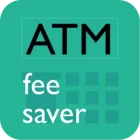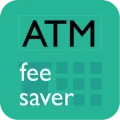Just landed - wondering what gives the better rate in Bulgaria: ATM withdrawal or airport exchange counter?
The smart approach in Bulgaria is to withdraw from ATMs in the city. Budget 60-100 BGN daily depending on food and excursions, and you’ll get better value this way. Use ATMs attached to real banks - avoid standalone machines near tourist spots, as they often add sneaky fees. The airport exchange is okay for 20-30 BGN to cover your initial taxi or bus, but not for large amounts. Always choose to be charged in BGN, not your home currency.
Bulgaria’s airport counters felt like a rip-off. I swapped €200 there because I thought “no commission” meant a fair deal. Wrong - I later checked against my bank’s ATM rate and lost enough to cover a whole dinner and drinks in Sofia. I was annoyed since I had budgeted carefully, about 70-80 BGN daily, and the loss cut into my plans. Don’t make my mistake - ATMs from reputable banks beat airport counters every time.
I exchanged €50 at Sofia Airport when I landed and quickly realized I got a bad rate. Later, I used a UniCredit ATM in the city and the difference was obvious - I got more leva for the same euros. During my trip, I spent around 60 BGN daily on meals, buses, and attractions like Alexander Nevsky Cathedral. Using ATMs stretched my money much further. My advice: change only what you need at the airport and rely on bank ATMs in town for the rest.
In Bulgaria, ATMs give you a far better rate than the airport exchange counters. Sofia Airport counters often advertise “0% commission,” but the hidden margins make it a poor deal. ATMs from UniCredit Bulbank, DSK Bank, or Raiffeisen generally track close to market rates. If you’re budgeting around 50-70 BGN for a day of meals, trams, and sightseeing, withdrawing directly is cheaper. Just make sure to decline “dynamic currency conversion” if prompted, as that can worsen the rate. Exchange only a small amount at the airport for taxis if needed.


